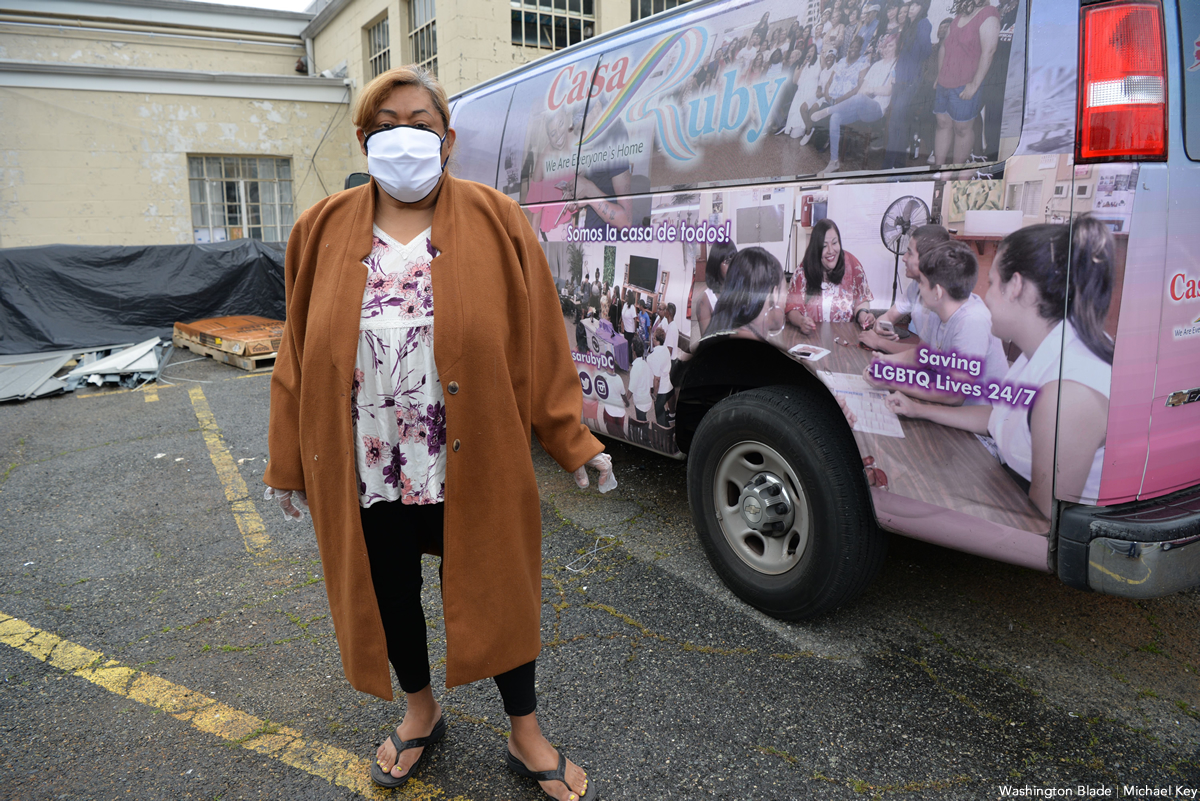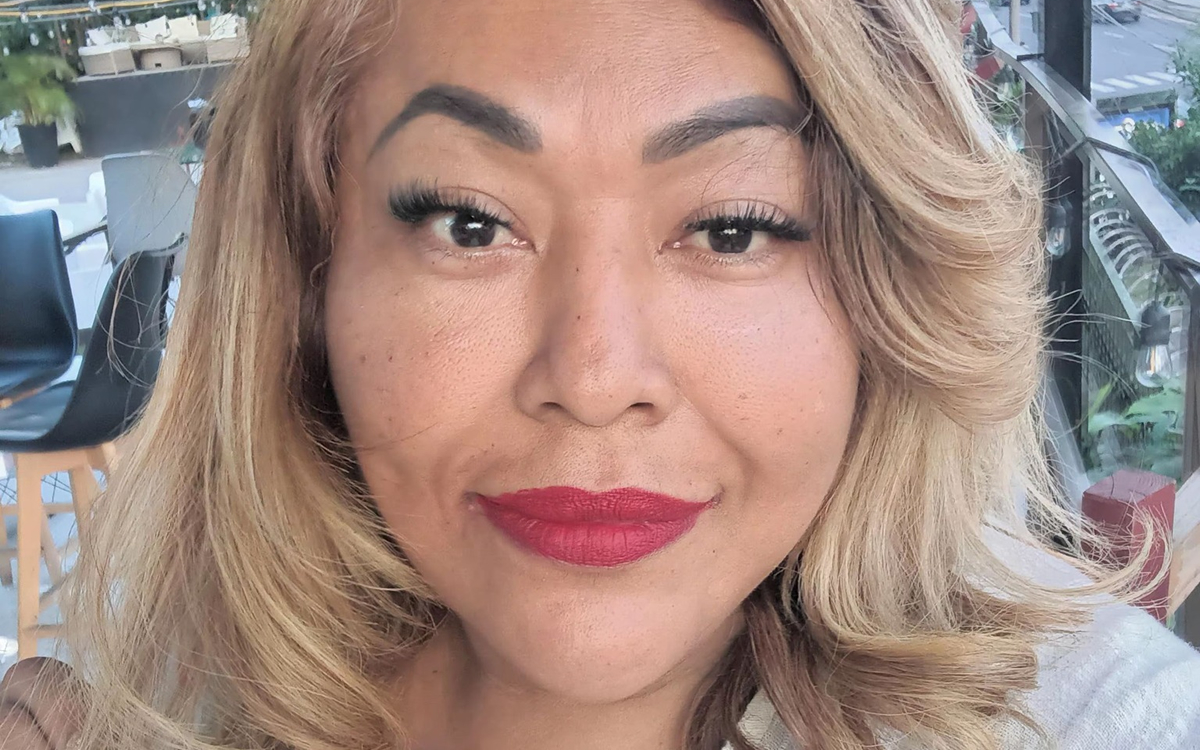Comings & Goings
August 3, 2023 12:00 amThe latest hearing in the civil case against Ruby Corado and Casa Ruby took place in D.C. Superior Court on July 21.
Corado did not attend the hearing in person, but called in from El Salvador where she currently lives.
The latest hearing focused on the three limited liability companies that Corado created and controlled: Casa Ruby LLC that did business as Moxie Health, Pneuma Behavioral Health LLC and Tigloballogistics LLC that operated as Casa Ruby Pharmacy.
The Office of the D.C. Attorney General has sued the three entities. Corado on July 21 wanted to testify on their behalf, but D.C. Superior Court Judge Danya A. Dayson told her she could not because legal rules prevent her from doing so. Corado has also not provided a lawyer to represent the companies.
Dayson on July 21 approved a motion filed by the Office of the D.C. Attorney General calling for her to issue a default judgement against the three LLC companies that requires them to pay a sum of money they allegedly improperly received from the original Casa Ruby at Corado’s direction and allegedly sent to Corado’s personal bank account.

Corado in December 2022 told the Washington Blade during an interview in San Salvador, the Salvadoran capital, the case against her and Casa Ruby amounts to “persecution.” Corado once again spoke with the Blade on July 28 in El Salvador.
Corado said the allegations against her are the “result of many movements that have been made against her activism.”
“Many haters began to criticize me because a trans Latina woman had so much privilege in Washington, D.C.,” said Corado.
Corado left El Salvador in the 1980s during the country’s civil war.
She said the only thing she did once she arrived in the U.S. was to work on behalf of those who needed help. Corado told the Blade she wanted to work for the ideals of the LGBTQ rights movement, and not for herself.
Corado said she began to see what she described as the D.C. government sabotaging social change six years ago, and she reinterated her previous claims that political persecution stemmed from it.
“I did things that had to be done,” said Corado.
Corado referenced the three allegations against her — Casa Ruby did not have a board, the board never held meetings over 10 years and she gave herself a salary without the board’s authorization — and reiterated her belief that she is the victim. Corado told the Blade the D.C. government’s decision to no longer fund Casa Ruby did not impact her, but the LGBTQ people who benefitted from what she described as this “historic project.”
The Office of the D.C. Attorney General has also accused Corado of withdrawing more than $400,000 of Casa Ruby funds to work in El Salvador. Corado maintains it was a personal loan that she made to the board and it was approved.
“This was to look for self-sustainable projects and at the same time to provide sustainability to Casa Ruby in Washington, D.C.,” Corado told the Blade.
She also said she has the necessary evidence that proves she owes the bank money because it transferred the funds to her as a personal credit. Corado told the Blade this evidence has not been presented in the case because it has yet to be discussed.
Corado said she justified the efforts to make Casa Ruby self-sufficient because she had seen other organizations in the U.S. do car washes, enter into partnerships with large businesses that sold products, open pharmacies and launch other projects that helped them become financially independent.
“The idea was born back in the year 2018 when I visited El Salvador with the mayor of D.C., Muriel Bowser, to talk about projects to mitigate migration,” she said.
Corado said she decided to support projects that would benefit LGBTQ Salvadorans in order to stop migration from the country. She also told the Blade she wanted to implement initiatives that would have employed LGBTQ people and provided support to older adults in the community.

Consuella López, who was the board’s president, and Meredith Zoltick, who was the board’s secretary, both testified during the July 21 hearing.
Corado told the Blade that López and Zoltick both testified there was a board during the time it was alleged that one didn’t exist.
“They mentioned there had been board meetings, but they didn’t always take notes,” said Corado. “They also said that they had indeed approved my salary.”
Corado told the Blade that López and Zoltick in their testimony denied all of the allegations against her. Corado added statements that Holly Goldmann, who was a Casa Ruby staffer, has also supported her.
The Blade couldn’t immediately reach Zoltick and Lopez to confirm Corado’s assertion that they gave statements to the court disputing the allegations against Corrado. Goldmann also couldn’t immediately be reached for comment.
The Wanda Alston Foundation, which Dayson has named as Casa Ruby receiver, has sued the former board members on grounds that they failed to adequately oversee the Casa Ruby operations and Corado’s role as executive director.
Dayson on May 1 dismissed the complaint against all but one of the former board members, Consuella Lopez. The judge states in her ruling that Lopez was an exception because the complaint presents evidence that Corado issued Lopez a Casa Ruby credit card to use for her personal expenses and doing that provided legal grounds for the complaint against her to continue. The Wanda Alston Foundation has appealed the decision to dismiss the complaint against the other board members.
The civil case against Corado and Casa Ruby will continue.
It remains unclear whether Corado has retained a lawyer, but she said the attorney who continues to advise her has said he must follow the legal process. Corado, for her part, told the Blade she will remain in El Salvador to continue with what she describes as the process of “self care” for her physical and mental health.
Lou Chibbaro, Jr., and Michael K. Lavers contributed to this story.
Categorised in: News, Washington Blade
